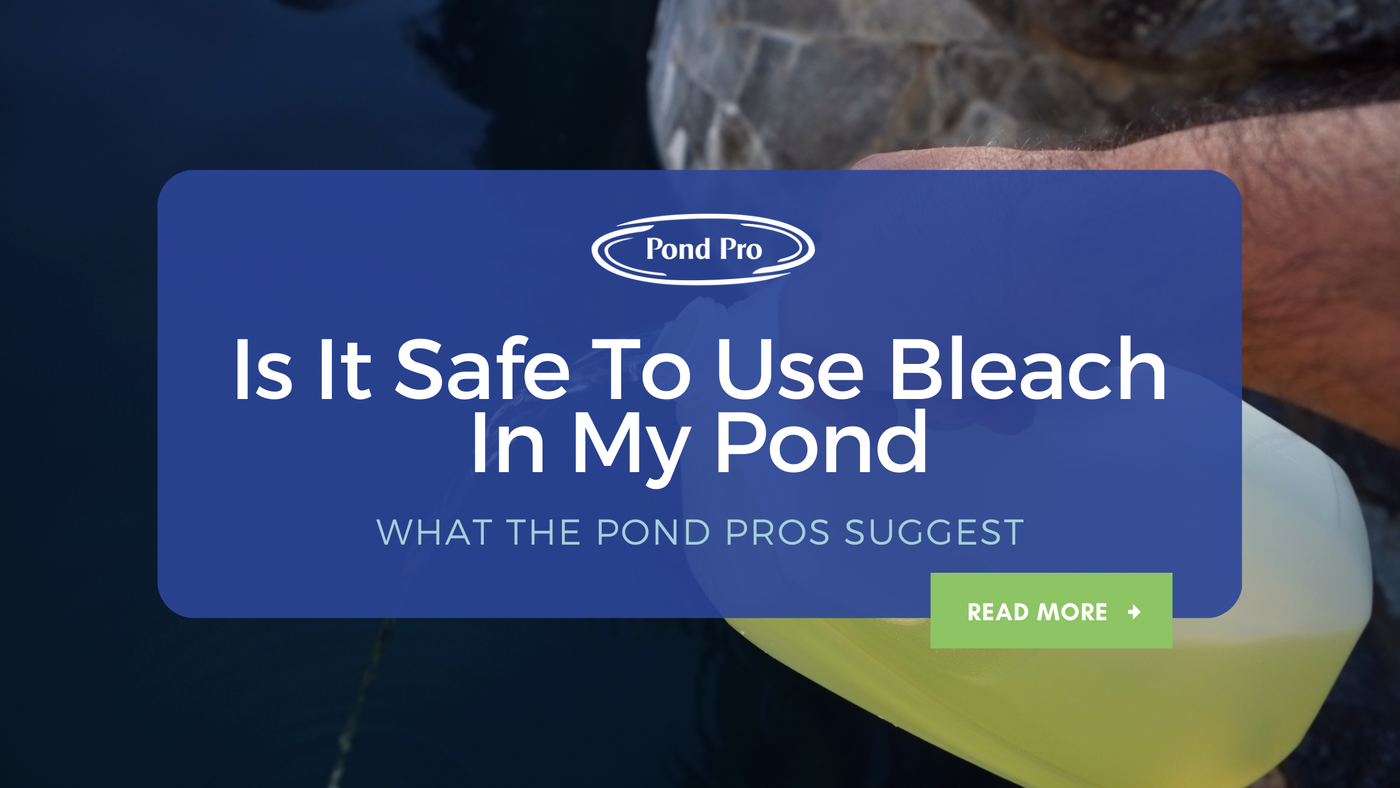Is It Safe to Use Bleach in My Pond?
With summer fully underway, many of us are enjoying our backyard ponds, dugout, and lakes for aesthetic purposes, swimming, kayaking, fishing, and more! With that being said, the warm weather, sunshine, and runoff can result in unwanted algae blooms, weed growth, and smelly water making our ponds less desirable. As frustrating as this may be, we urge you NOT to bleach or add chlorine into your pond to try and eliminate weeds, algae, bacteria, or odours.
Bleaching or chlorinating your pond may seem like a quick, cost-effective, and easy solution to cleaning your pond and keeping it healthy, however, there are many harmful effects associated with bleaching your pond including the following:
1. Chlorine is harmful to fish and other aquatic creatures
In high concentrations, chlorine can be lethal to fish and aquatic creatures in ponds, as the chlorine can damage gills resulting in breathing difficulty and possibly death. In lower doses, chlorine irritates fish and aquatic creatures by affecting the gills, scales, and protective slime coat. This can result in discomfort and stress.
2. Chlorine combines with organics to create toxic chemical compounds
Natural bodies of water such as ponds, dugouts, and lakes naturally contain organics. Even “clean” and “healthy”, organic material is present in the pond. When chlorine is added to a natural body of water it binds with organics to form toxic, cancer-causing chemical compounds known as trihalomethanes. Frequent exposure to such chemicals can be harmful to people and animals.
3. Killing unwanted weeds and aquatic creatures deposits decaying matter in the pond resulting in odours
Chlorine does effectively kill weeds and unwanted living creatures in your pond, however, in doing so it also results in large amounts of decaying wastes depositing in your pond. Weeds are complex, multicellular structures that do not rapidly decompose. Instead, when we kill large quantities of weeds we create a mass of decaying and rotting matter in the pond that often results in unpleasant odours and foam.
4. Chlorine can cause chemical imbalances within your pond and change the pH.
Chlorine should only ever be used in pools and spas, but never in ponds, lakes, or dugouts. Ponds create unique and natural ecosystems that contain various living things that contribute to the health and appearance of the pond. Whether that be a positive or negative effect, always ensure that you consult with knowledgeable pond and lake management experts to help you figure out an appropriate and safe treatment regime with certified pond products to help keep your pond healthy, or return it to its once beautiful state.
Pond Pro also offers custom water testing completed by our in-house biologists to help figure out a custom treatment regime for your pond based on the issues facing your pond. Contact us for more information at sales@pondpro.ca.
Recent Posts
-
Winter Water Chemistry: What Happens Under the Ice
Winter Water Chemistry: What Happens Under the Ice When winter sets in and the pond freezes over, th …18th Dec 2025 -
Top Gift Ideas for Pond Owners: Practical, Fun & Perfect for Any Season
With the holiday season quickly approaching, it’s the perfect time to start thinking about meaningfu …4th Dec 2025 -
De-Icing System Sizing Guide: How to Pick the Right System for Your Pond or Dock
Learn how to size, install, and position a pond or dock de-icer for cold climates. Protect your fish …28th Nov 2025




